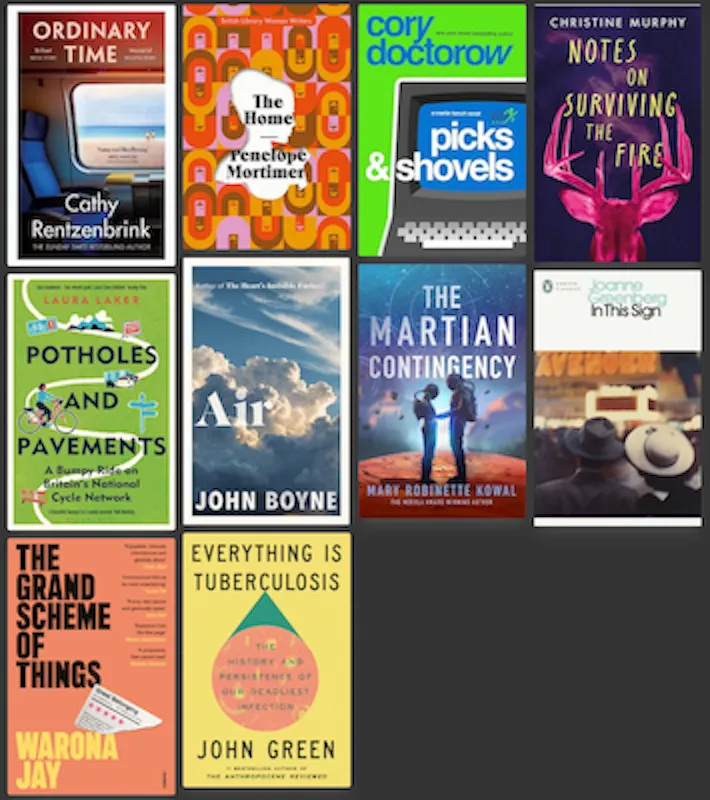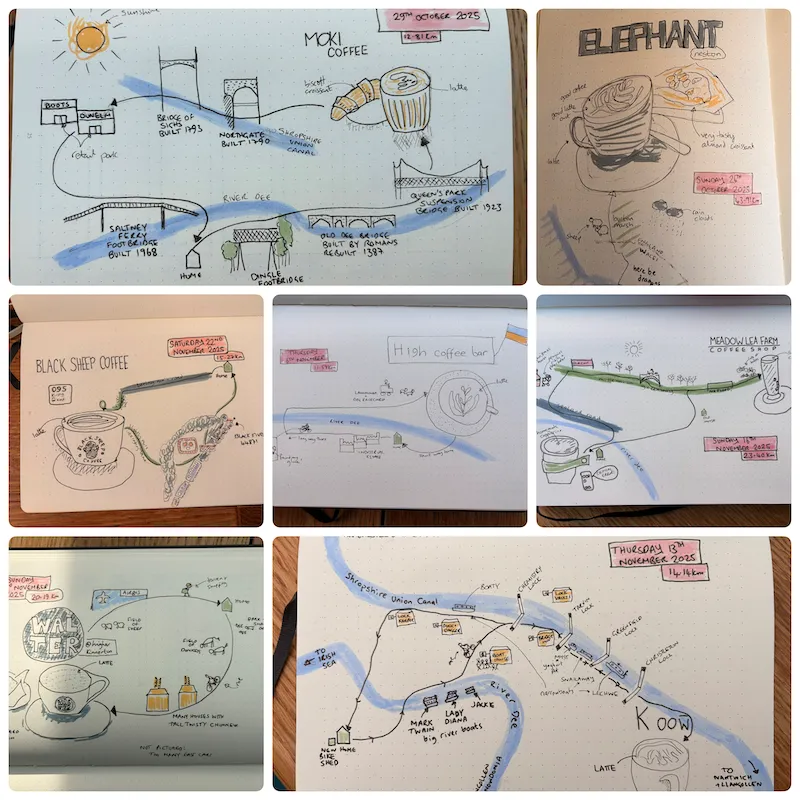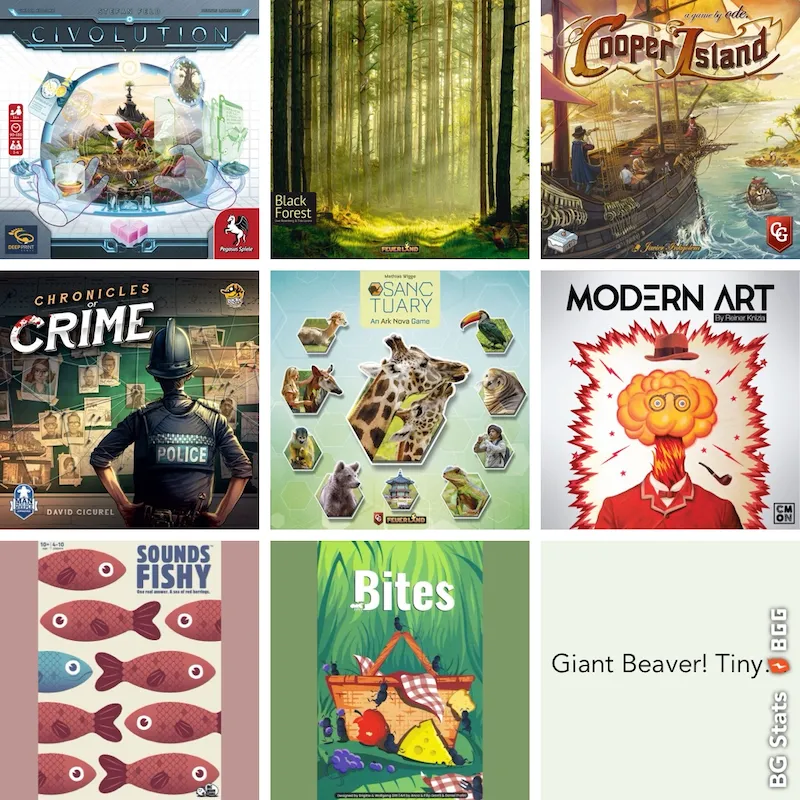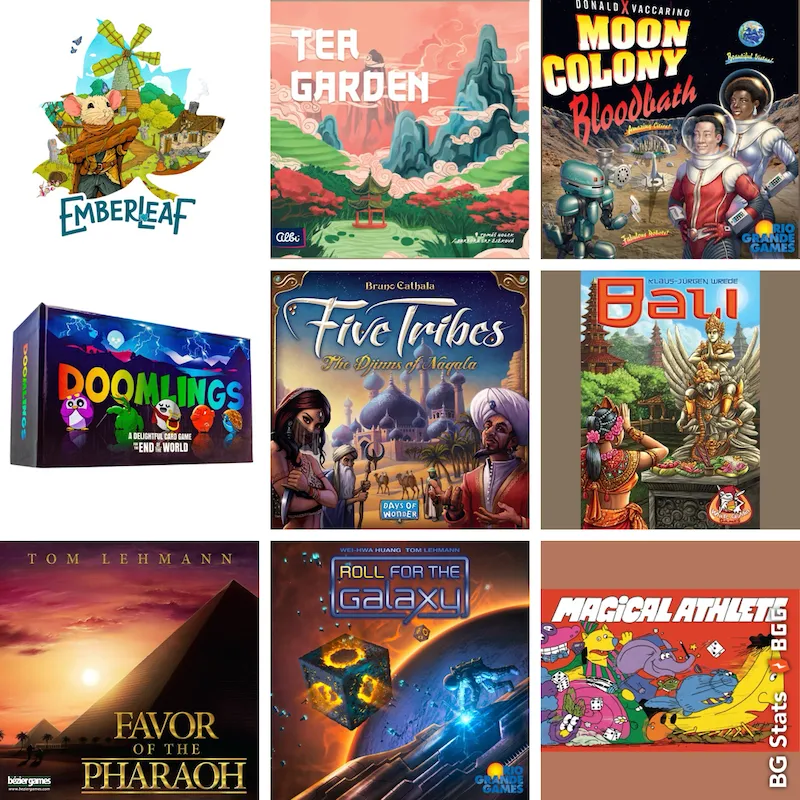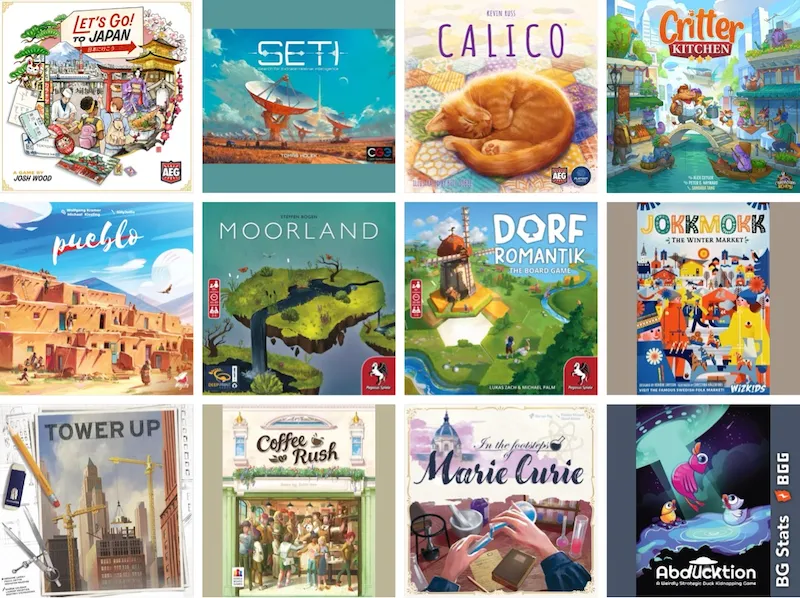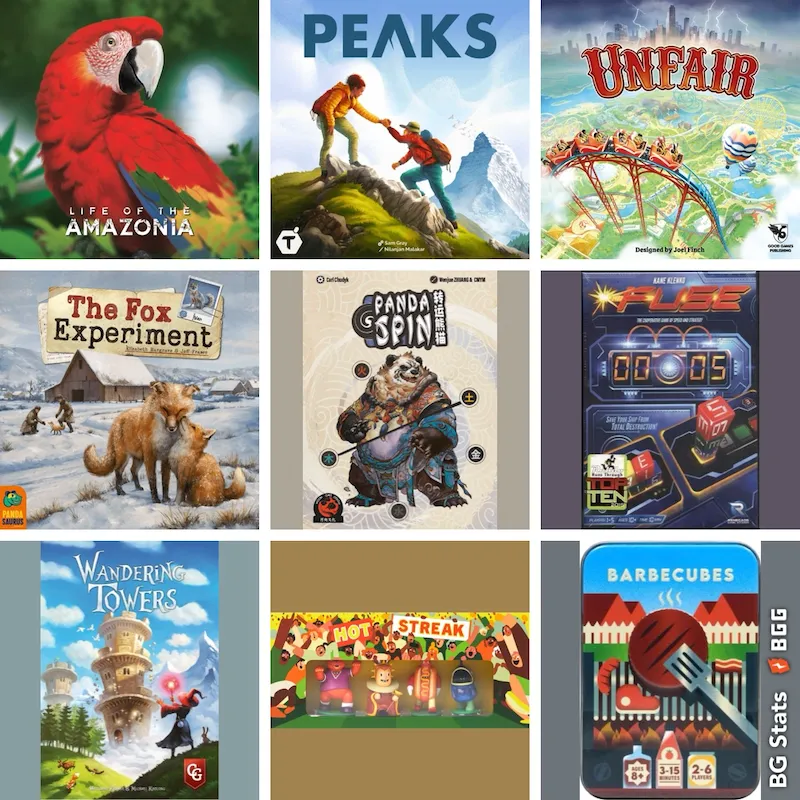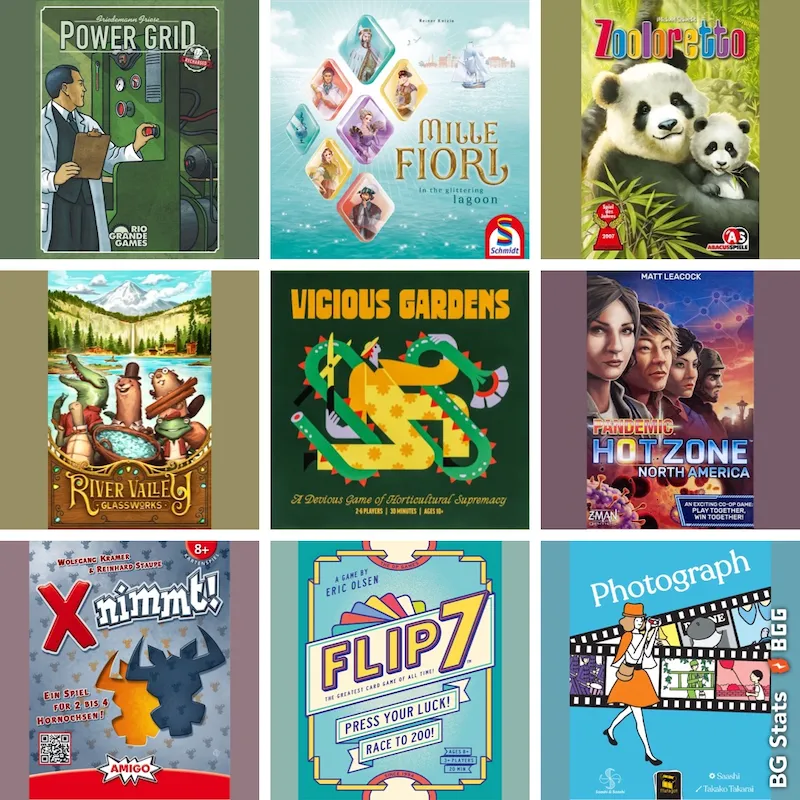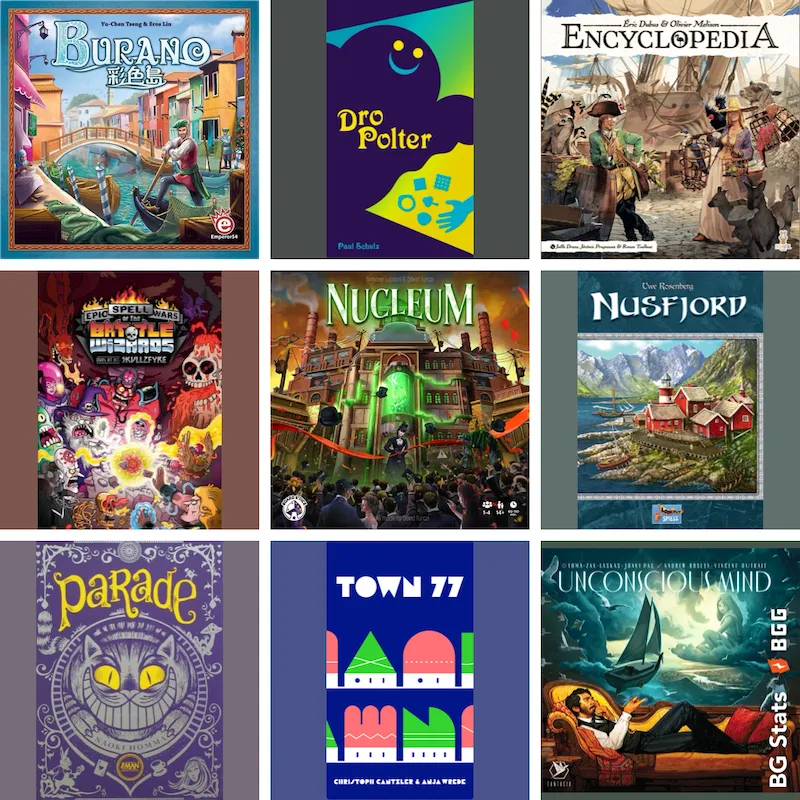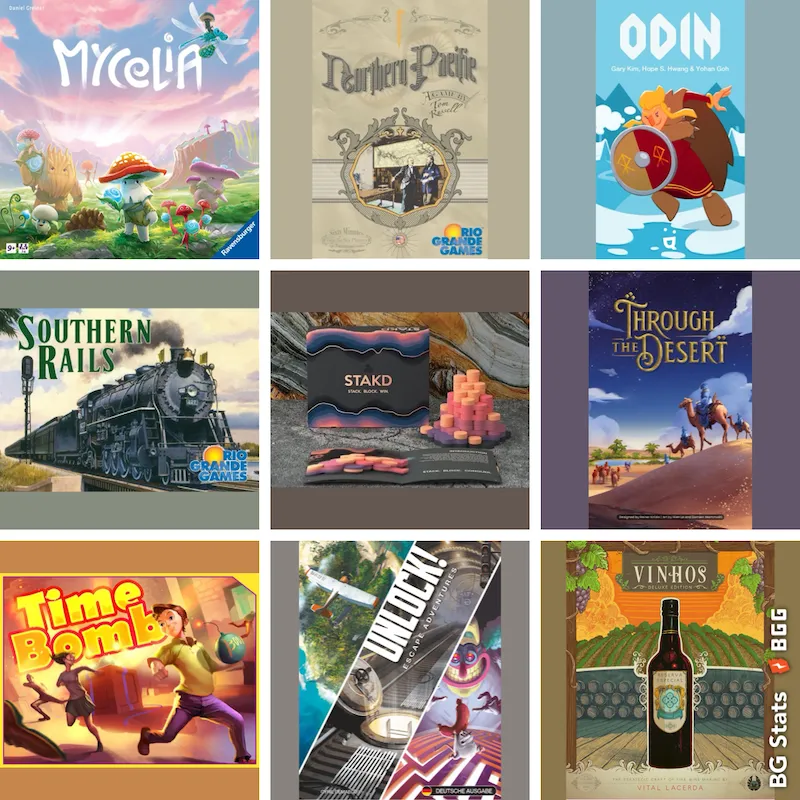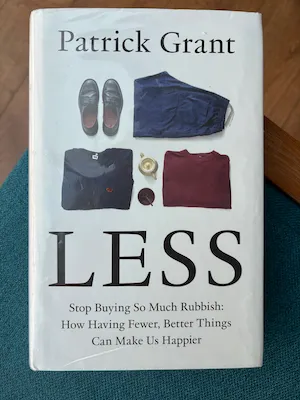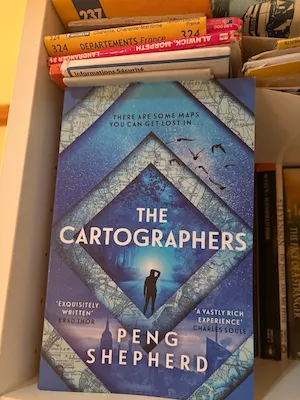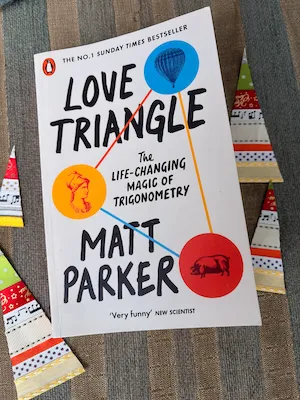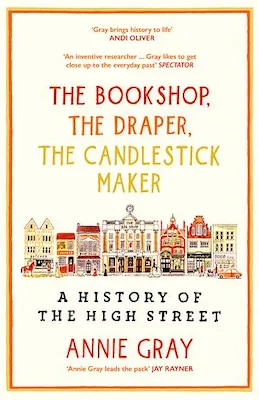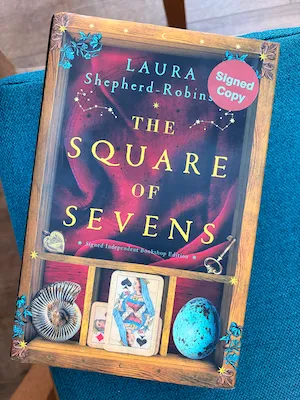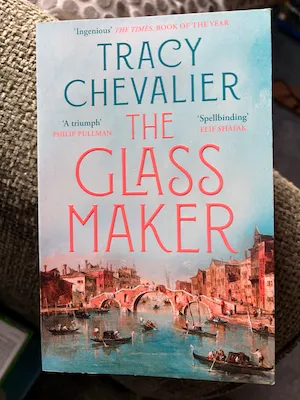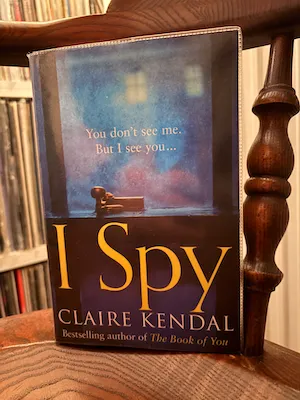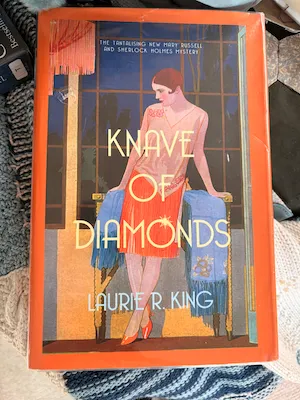2025 in Board Games
14 January 2026
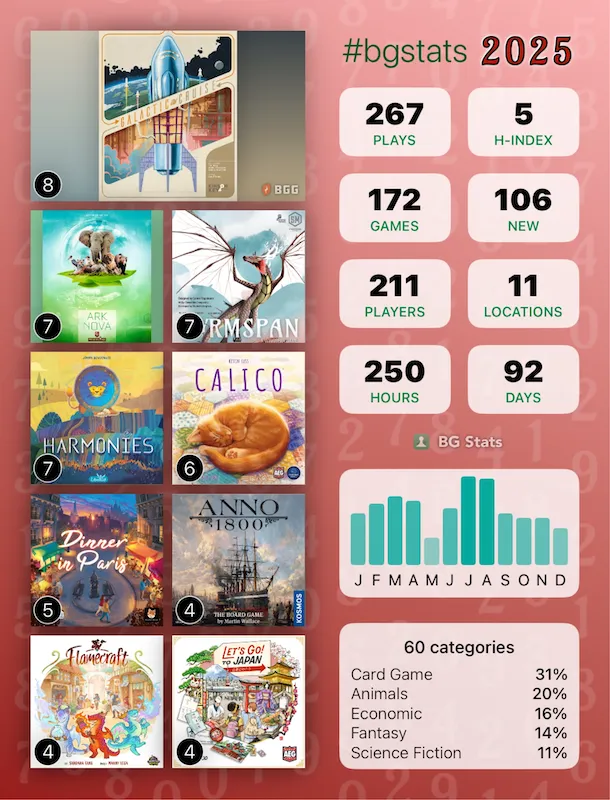
Last year I said that
I’d be very happy to keep going at this amount of time and plays.
And that came good for me. I am indeed happy. I played 267 games, slightly up from 254 last year, and 172 different games, also up from the 151 last year. All is well. There were less different players but I suspect that number is much affected by whether I record all the anonymous other players in mega games like ‘Just 100’ at Airecon where 100 people play a game intended for 6 (huge fun by the way!)
This is more or less a completely different list from last year. Harmonies and Kingdomino do feature at the bottom of both lists but one fell off the graphic for this year and the other fell off for last year.
I’m pleased with the fact that seven of the nine games pictured are ones that I own; last year it was four. I’m often shy of suggesting groups play my games so I think that’s progress.
1. Galactic Cruise
I’m really pleased that the big game I backed on Kickstarter a couple of years back, and that arrived here in the spring has come in as the most played game of the year. It’s an enormous box - I can just about carry it on my bike but not with any other games going along as well. It’s a long heavy game, and I haven’t tried to play it in an evening board game session yet reserving it for day long sessions when time is less of an issue.
I spent a long time thinking about how to teach it when it arrived - well, after I taught it badly the first time I played it - and that effort has definitely paid off. Most everyone I’ve played it with has seemed to enjoy it as well. I thought I had one player who hated it halfway through the game but it turned out he was just beating himself up for doing things suboptimally and he requested a second game at a later date so that was a relief.
=2. Ark Nova
This is a favourite of several players in my board game groups and as such it gets to the table often and I’m always happy to join in with it. If I didn’t know so many people with copies of it already it’s definitely one I’d buy for myself.
=2. Wyrmspan
I was given a copy of this for my birthday, at my request as I don’t own any of the Wingspan games but always enjoy them. This is my favourite of them and one I’m always happy to play.
=2. Harmonies
This is a favourite filler game to start the afternoon with at one of my board game groups and the puzzle is fun enough that I don’t turn down the chance to play it. I said in last year’s roundup that it was likely to turn into an evergreen game, and that is definitely happening.
5. Calico
Another of my own games, picked up in August, I don’t feel like I’ve played it that many times possibly because I’ve had more luck persuading family to play it than board gamers. I think it’s a lovely puzzle. Another one where I had a player tell me they hated it whilst playing and I felt I was making people miserable but they went and bought their own copy after so I think I misinterpreted their “hate” and they just meant it was breaking their brain.
6. Dinner in Paris
Yet another game that I actually own, that’s definitely the theme of this years top games! I should think about how to teach this one better, it’s a pretty simple game but I seem to botch the explanation every time. The set up with a million little pieces is a bit of a pain and the game play is a bit random, but I like it for some mid-weight fun and other players have requested to play it again so that’s good.
=7. Anno 1800
This is another game that I requested as a gift after playing someone else’s copy, and another that I don’t feel I’ve taught to other players particularly well. Definitely one I want to get to the table more this year as well.
=7. Flamecraft
Another gift, as requested. I’ve had a couple of five player games of this that have been a bit of a pain, it’s definitely better at a lower player count with less down time and I’ve not been pushing it to the table too often as a result.
=7. Let’s Go to Japan
Three of the four games I’ve played of this were two player games with the offspring. I’d like to play this more this year with more players but it’s another I’m cautious about asking people to play. Some of that is that I don’t like it when people don’t enjoy what I bring. And that’s silly since I don’t mind at all when someone shares a game with me that I don’t enjoy. But it’s also nice to have a game that’s good to pull out for just the two of us as well.
=7. Kingdomino
The only game that got missed off the graphic for space and alphabetical reasons was this which is definitely an evergreen filler game.
Looking Forward
Once again, I’d be very happy to do this amount of gaming this year! I’m really pleased with how many of my top played games are my own. I definitely don’t want to buy a load of games this year but I will rotate a few out of my collection at the Airecon bring & buy sale in March and will inevitably acquire a few more!
My resolution for the year is probably to get better at teaching some of my own games, when I get it right it’s great.
Permalink